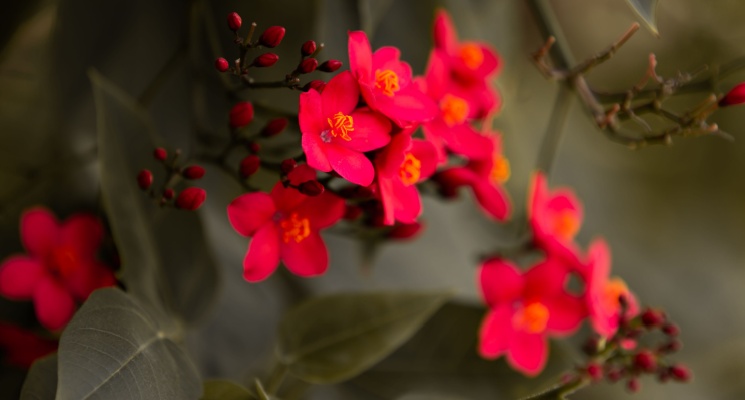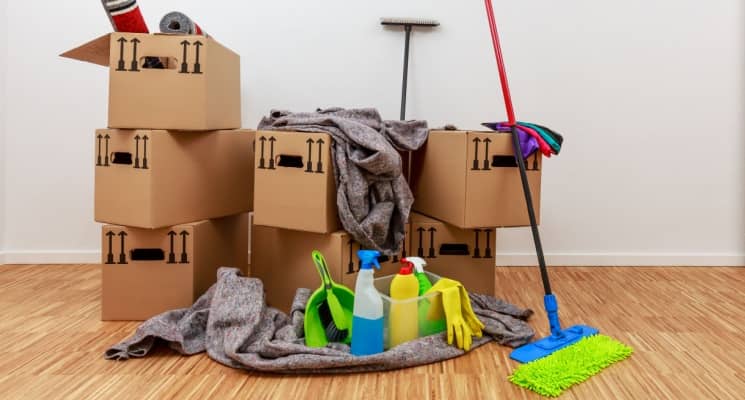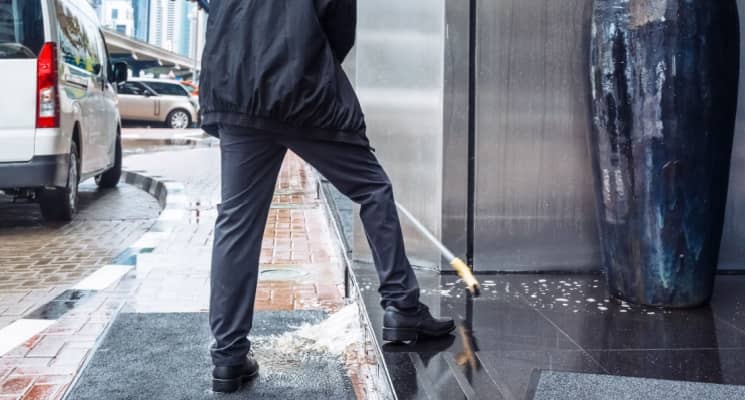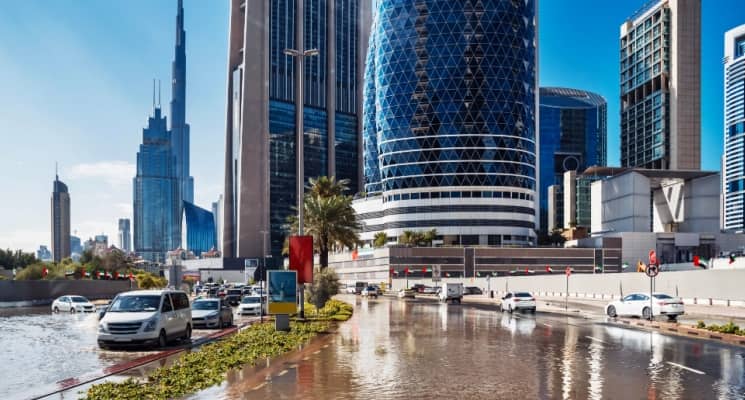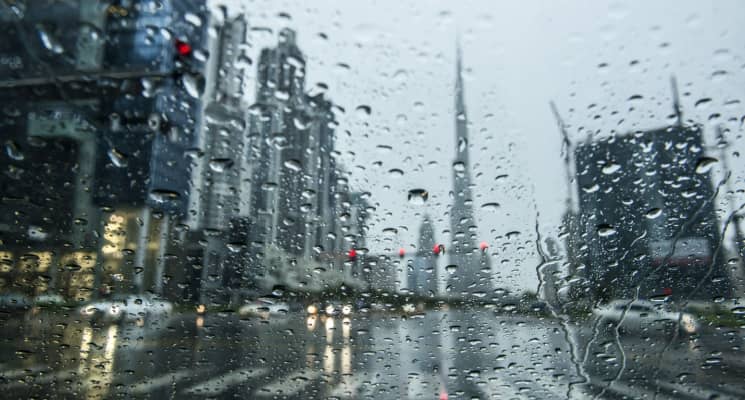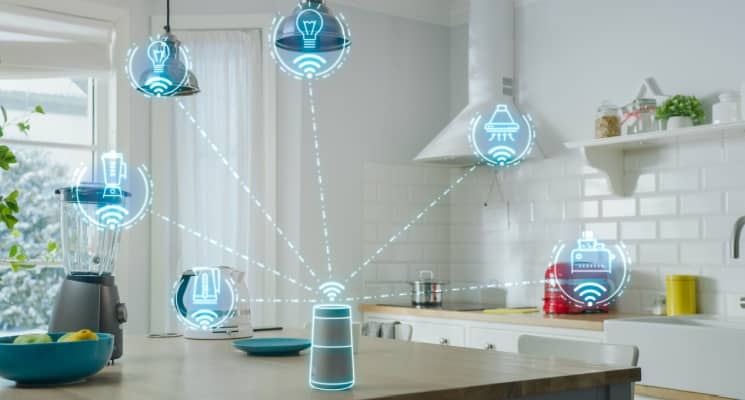Dubai sees many expats moving to the city and given the changing rents, moving within the city in search of more affordable accommodation is fairly common. Due to the many reliable movers and packers in Dubai, the shifting part can be very convenient. However, the real test begins after, when the residents have to turn that new house into a home in the unfamiliar culture, weather, and more.
One of the things that truly makes a new space feel like home is the presence of a garden or your favorite plants, both indoors and outdoors. But with Dubai’s scorching summers, keeping them healthy can be a real challenge.
Understanding Dubai’s Climate
Dubai’s summer is characterized by intense heat and humidity, with temperatures often soaring above 40 °C (104 °F). High temperatures pose a unique set of challenges for plant care. This requires strategies that focus on hydration, protection from direct sunlight, and soil moisture retention. Here are some essential tips to care for your outdoor and indoor plants so that they can thrive in this heat.
Tips for Outdoor Plants
Outdoor plants in Dubai face the full brunt of the summer heat. While they can withstand the environment better than plants that are indoors, hotter and longer days may still be stressful. Here is what you can do to relieve some of that heat:
1. Optimize Watering Practices
Efficient watering is crucial. You should try watering significantly but less frequently to encourage deep root growth and minimize evaporation. Early mornings or late evenings are the best times to water, reducing water loss due to evaporation during peak daytime temperatures. You can even use drip irrigation or soaker hoses to deliver water directly to the roots.
2. Provide Shade and Shelter
Shield plants from direct sunlight during the hottest parts of the day using shade cloths, green shading nets, umbrellas, or even temporary structures like pergolas. Strategically placed taller plants can act as natural sunblocks too. This helps prevent sunburn and reduces heat stress.
3. Mulching
Apply a thick layer of organic mulch around plants. This insulates the soil, retains moisture, and regulates soil temperature. Using organic materials like shredded bark or compost improves soil fertility over time. Gravel or pebbles can also be used in decorative gardens. They help reduce evaporation and maintain soil temperature. Mulching also suppresses weed growth.
4. Choose Heat-Tolerant Plants
Select plants native to desert climates or those known for their heat resistance. A few excellent choices for Dubai’s summer landscape due to their ability to thrive in hot, dry conditions include:
- Succulents (e.g: Aloe vera, Agave)
- Cacti
- Bougainvillea
- Plumeria
- Oleander
- Date palm
- Desert roses (Adenium)
5. Soil Management
Healthy soil is the foundation of a thriving garden. Regularly add organic compost or well-rotted manure to improve soil fertility and structure. Ensure the soil pH is suitable for the plants you are growing. Most garden plants prefer a slightly acidic to neutral pH (6.0-7.0).
6. Regular Maintenance
Inspecting plants regularly for signs of stress such as wilting or yellowing leaves, pests, or diseases is a good practice. You should prune dead or damaged foliage to promote airflow and reduce the plant’s overall stress load during summers.
Tips for Indoor Plants
Indoor plants in Dubai can provide a refreshing green oasis in your home, but they need special attention during the summer months. Here are some tips to keep them healthy:
1. Placement Matters
Position indoor plants away from direct sunlight, especially during the hottest part of the day. Choose spots where they can still receive bright, indirect light, such as near a window with sheer curtains.
2. Choosing the Right Indoor Plants
Select plants that can tolerate low light and indoor conditions, yet are hardy enough to withstand occasional heat surges These include snake plant, bamboo plant, ZZ plant, aloe vera, pothos, spider plant, rose plant, and money plant.
3. Humidity Control
Due to excessive use of air conditioners in the summer months, the indoor air can become extremely dry, which may affect humidity-loving plants. Increase humidity by misting plants with water or placing them on a tray filled with pebbles and water (ensure the pots are not sitting directly in the water).
4. Air Circulation
Ensure good air circulation around indoor plants to prevent stagnant air and heat buildup. Fans or air conditioners on low settings can help to gently move air without causing drafts that could stress plants.
5. Regular Dusting and Cleaning
Dust can accumulate on indoor plant leaves, inhibiting their ability to photosynthesize efficiently. Wipe down leaves gently with a damp cloth or give them a gentle shower occasionally to keep them clean and healthy.
6. Avoid Overwatering
Indoor plants are more susceptible to overwatering due to reduced evaporation. Water plants only when the top inch of soil feels dry to the touch, adjusting frequency based on individual plant needs.
7. Pruning and Maintenance
Summer is a good time for light pruning to encourage bushier growth and remove any dead or diseased parts. Inspect plants regularly for pests, as they can become more active in warmer weather.
Special Considerations for Container Gardening
Container gardening is a popular option in Dubai, especially for those living in apartments or with limited outdoor space. Containers offer flexibility and control over the growing environment, making them ideal for managing plant health during the extreme summer months.
1. Selecting the Right Containers
Choose containers made of materials that offer good insulation, such as ceramic or plastic, to protect roots from the intense heat. Ensure they have adequate drainage holes to prevent waterlogging, which can lead to root rot.
2. Using the Right Soil Mix
Use a high-quality potting mix that retains moisture while allowing excess water to drain. Adding materials like perlite or vermiculite can improve aeration and moisture retention, which is crucial in hot weather.
3. Watering Container Plants
Container plants often dry out faster than those in the ground, so they may require more frequent watering. Check the soil moisture daily and water thoroughly when the top inch feels dry. Avoid shallow watering as it can cause roots to grow near the surface, making them more susceptible to heat stress.
4. Positioning for Optimal Growth
Move containers to locations where they can receive morning sunlight and afternoon shade, which is less intense. Utilize movable plant stands or trolleys to easily reposition plants as needed to protect them from direct afternoon sun.
5. Fertilization Routine
Container plants rely on the nutrients available in their confined soil, which can deplete quickly. Use a balanced, slow-release fertilizer to provide a steady supply of nutrients throughout the growing season. Be cautious not to over-fertilize, as this can cause nutrient burn in high temperatures.
6. Monitoring and Maintenance
Regularly inspect container plants for signs of stress, pests, or diseases. The confined environment of a container can sometimes lead to quicker spread of issues. Prune dead or damaged foliage to encourage healthy growth and improve air circulation around the plants.
7. Grouping Plants
Group containers together to create a microclimate that retains humidity and reduces evaporation. This technique helps keep the plants cooler and provides some shade to the soil, further conserving moisture.
General Guidelines for Optimal Plant Care
Summer in Dubai can be challenging for plants, but with the right strategies, you can keep your garden lush and vibrant. Here are some general tips to help your plants thrive during the hottest months.
Monitor Soil Moisture
Use a moisture meter or simply check soil moisture levels regularly, especially during periods of extreme heat. Adjust watering schedules accordingly to prevent both under and overwatering. Furthermore, irrigation water in Dubai can have high salt content, leading to salt build-up in the soil. Look for white crust on soil surface, leaf burn, and poor growth. If you spot these symptoms, leach the soil with fresh water periodically and use gypsum to improve soil structure.
Fertilize Sparingly
During summer, plants are already under stress, so reduce fertilizer application to avoid burning roots. Use a balanced, slow-release fertilizer applied at half-strength or opt for organic alternatives. As per organic options, you can try using fertilizers like fish emulsion or seaweed extract for a more natural approach.
Protect Newly Planted or Tender Plants
Newly planted or delicate plants need extra care. Provide shade, wind protection, and additional watering until they establish deeper roots and can tolerate harsher conditions.
Inspect and Treat for Pests
Summer warmth can accelerate pest activity. Inspect plants regularly for pests like spider mites, aphids, and whiteflies. Use natural or organic pest control methods to avoid harming beneficial insects like ladybugs. You can use neem oil (margosa oil) sprays, insecticidal soap, or homemade garlic sprays as organic pest control methods.
If all else fails, you always have the option to avail services from professional pest control companies in Dubai.
Plan Ahead for the Summers
Consider planting and landscaping choices that are well-suited to Dubai’s climate. Research and consult with local nurseries for advice on the best plants for summer resilience.
Leveraging Technology for Gardening
Modern technology can significantly enhance your plant care routine, especially during the challenging summer months in Dubai.
Smart Irrigation Systems
Invest in smart irrigation systems that can be programmed to water plants at optimal times, such as early morning or late evening. These systems can be adjusted based on weather conditions to prevent overwatering or underwatering.
Soil Moisture Sensors
Use soil moisture sensors to monitor the moisture levels in your soil accurately. These devices can alert you when it is time to water, ensuring that plants receive consistent hydration without the risk of root rot.
Plant Care Apps
Download plant care apps that provide tailored advice based on your plant species and local climate conditions. These apps can remind you of watering schedules, fertilization times, and even diagnose plant health issues using photo recognition technology.
Engaging with the Local Gardening Community
Connecting with other plant enthusiasts and experts in Dubai can provide valuable insights and support. Here are some ways to get involved:
Join Gardening Clubs
Participate in local gardening clubs and online forums where you can share experiences, ask questions, and learn from seasoned gardeners. These communities often organize workshops and meetups that can be incredibly educational.
Attend Workshops and Events
Keep an eye out for gardening workshops and events hosted by local nurseries, botanical gardens, and community centers. These events often cover topics specific to gardening in Dubai’s climate and provide hands-on learning opportunities.
Follow Local Gardening Influencers
Follow local gardening influencers on social media, such as Vegetable Garden Dubai and ME Garden Magazine by Sophie. These accounts regularly post tips, inspiration, and updates about gardening in Dubai, helping you stay informed and motivated.
Creating a Sustainable Garden
Building a sustainable garden in Dubai not only conserves resources but also ensures a resilient and thriving plant environment. Here are some practical steps to create an eco-friendly garden in the city’s challenging climate:
Water Conservation
Sustainable gardening practices are crucial in water-scarce regions like Dubai:
- Rainwater Harvesting: Collect rainwater during the rare rain showers to use for your plants.
- Efficient Irrigation: Use water-efficient irrigation systems like drip or soaker hoses.
Native Plants
Incorporate native plants into your garden:
- Adapted to Climate: Native plants are naturally adapted to the local climate and require less water and maintenance.
- Support Local Wildlife: Native plants provide habitat and food for local wildlife, promoting biodiversity.
Composting
Recycle organic waste to create nutrient-rich compost:
- Kitchen Scraps: Use fruit and vegetable peels, coffee grounds, and eggshells to make compost.
- Garden Waste: Add leaves, grass clippings, and pruned branches to your compost pile.
Looking for Plants in Dubai?
There are many nurseries that have a variety of both native and exotic plants. These places also have all the gardening supplies like pots, seeds, and soil. Some of the top nurseries include:
- Orchid Garden Center
- Wahat Al Sahraa Nursery
- The Garden Centre
- Dubai Garden Centre
- Hassan Akbar Gardening
- Oxy Green Plants
- Gover Garden Centre
- Zabeel Nursery
You can also get decorative statues, beautiful vases, and other garden features from various nurseries to enhance the beauty of your green areas. Transportation is not an issue because many movers in Dubai offer this service.
Caring for plants during Dubai’s intense summer demands dedication, an understanding of local conditions, and proactive steps to maintain their health. Since every plant has its own needs, observe closely and tailor your care routine accordingly. With the right attention and planning, your plants can not only survive, but thrive.

